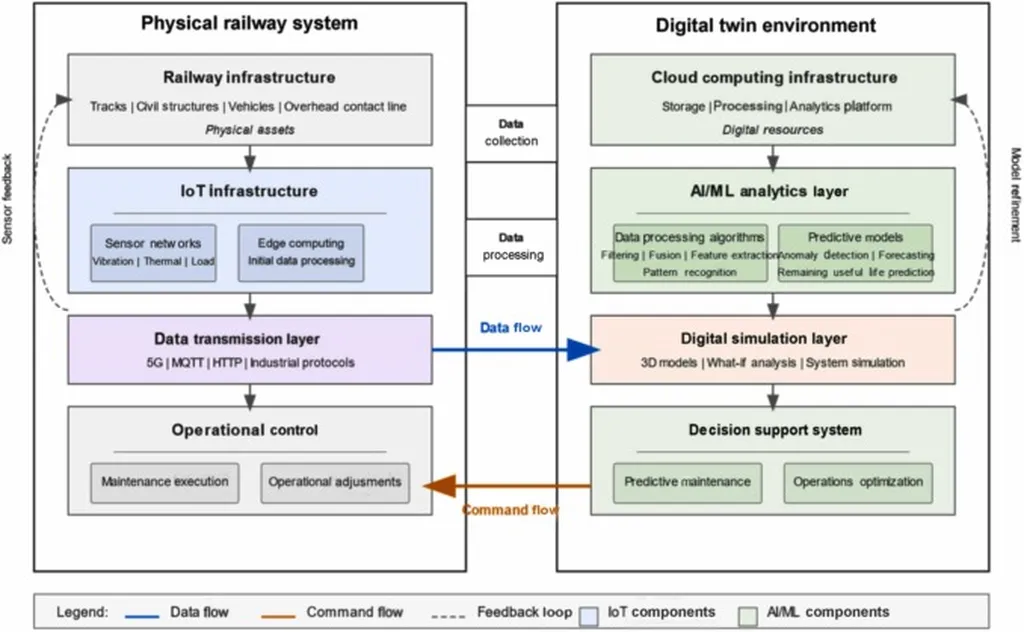In the bustling world of urban rail systems, where efficiency and safety are paramount, a groundbreaking study has emerged that could revolutionize how we manage and maintain signaling systems. Published in *Kongzhi Yu Xinxi Jishu* (translated as *Control and Information Technology*), the research, led by DENG Yongqi, introduces a data platform designed to tackle the monumental task of processing vast amounts of data in urban rail signaling intelligent operation and maintenance systems.
The study addresses a critical challenge in the industry: the sheer volume of data generated by modern signaling systems. Traditional data platforms often struggle with the throughput and processing performance required to handle this deluge of information. DENG Yongqi and his team have developed a solution that not only meets these demands but significantly enhances them.
At the heart of this innovation is a sophisticated data platform architecture that leverages cutting-edge technologies. The platform employs an HDFS (Hadoop Distributed File System) distributed file system to ensure robust data storage. This is coupled with the MapReduce framework, which provides high reliability, efficiency, and fault tolerance for big data offline calculations. To further boost performance, the platform utilizes the Spark and Flink frameworks for real-time data processing, effectively eliminating the bottlenecks of traditional storage architectures.
The results are impressive. Through rigorous simulation tests, the new platform demonstrated a staggering 4.8 times improvement in data processing efficiency compared to traditional systems. Additionally, system throughput performance saw a notable enhancement of 2.9 times. These advancements lay a solid foundation for the implementation of intelligent operation and maintenance systems in urban rail signaling.
The commercial implications for the energy sector are profound. As cities around the world continue to expand and modernize their rail networks, the demand for efficient and reliable signaling systems will only grow. This research provides a blueprint for developing data platforms that can handle the complexities of urban rail operations, ensuring smoother, safer, and more efficient transit systems.
“Our goal was to create a platform that could keep pace with the ever-increasing demands of urban rail systems,” said DENG Yongqi. “By integrating advanced technologies like HDFS, MapReduce, Spark, and Flink, we’ve developed a solution that not only meets but exceeds these demands, setting a new standard for data processing in the industry.”
The impact of this research extends beyond immediate applications. It paves the way for future developments in intelligent operation and maintenance systems, offering a glimpse into a future where data-driven solutions enhance the efficiency and reliability of urban infrastructure. As cities strive to become smarter and more connected, the insights gained from this study will be invaluable in shaping the next generation of urban rail systems.
In an era where data is king, DENG Yongqi’s research stands as a testament to the power of innovation in transforming the way we manage and maintain critical infrastructure. The journey towards smarter, more efficient urban rail systems has taken a significant leap forward, and the future looks brighter than ever.

